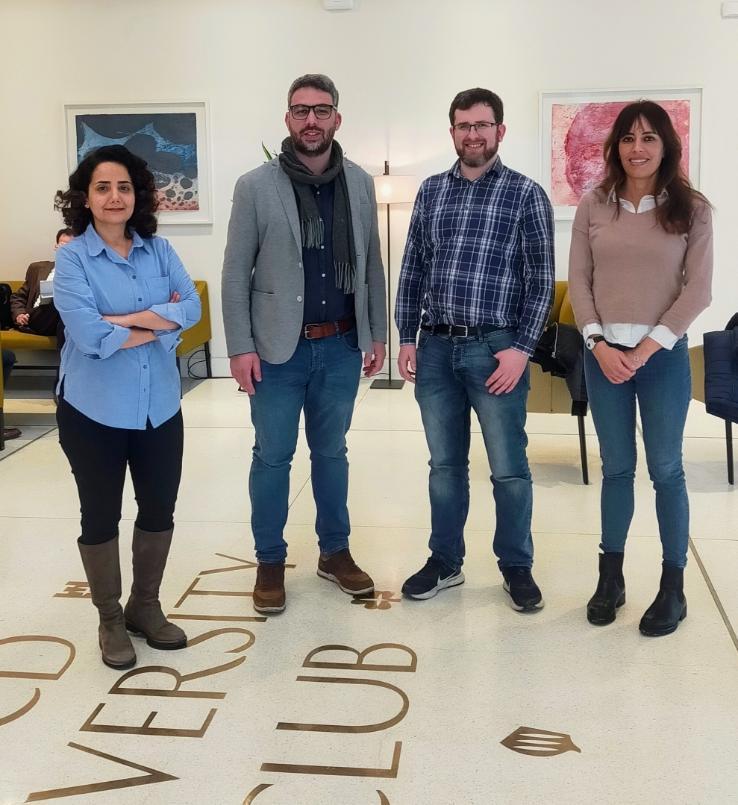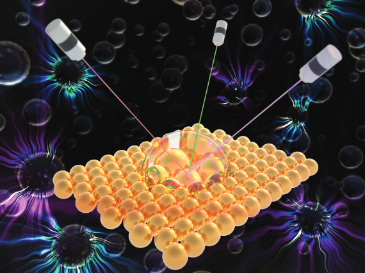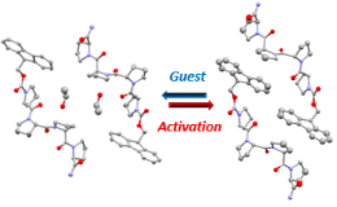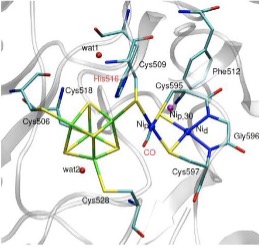
(From Left) Leila Negahdar, Aniello Palma, Joseph Byrne, and Nadia Elghobashi-Meinhardt
Assistant Professor Leila Negahdar
Before coming to UCD, Leila was Marie Skłodowska-Curie Individual Fellow in University College London. Prior to this, she was research associate at Cardiff University UK, postdoctoral research fellow at RWTH Aachen University Germany, and postdoctoral research fellow at Utrecht University Netherlands. She received her master’s degree from University of Dortmund, Germany, and PhD degree in Chemistry from RWTH Aachen University in 2015. Her research interests include mainly catalytic surface reaction, kinetics and mechanism, chemical processes and in situ/operando spectroscopy in catalysis. Her current research focuses on applying dynamic catalysis and innovative approaches for tackling the grand global challenges - climate change, pollution, and sustainable energy.

Research highlight: Shining light on the solid–liquid interface: in situ/
operando monitoring of surface catalysis
Assistant Professor Aniello Palma
Aniello obtained a Master's degree in Chemistry at the Università di Napoli Federico II in 2005. In October 2010, he obtained his PhD in Organic Chemistry from UCD with a thesis entitled “Synthesis and Application of New Infra-Red Fluorophores”. In January 2011, he joined the group of Prof Anthony Barrett (FRS, FMEDSCI) in Imperial College London, as a postdoctoral researcher working on a medicinal chemistry project involving the synthesis of cyclin-dependent kinase inhibitors. In January 2015, he joined Prof Oren Scherman’s research group in the Melville Laboratory for Polymer Synthesis at the University of Cambridge focusing on the synthesis of supramolecular polymers, supramolecular sensors and on the development of supramolecular catalysts. In August 2017, Aniello started his independent career in the School of Physical Sciences at the University of Kent as a Lecturer in Organic Chemistry. He joined the School of Chemistry at UCD as an Assistant Professor in Organic and Medicinal Chemistry in January 2023. Aniello’s research focuses on the design of smart and responsive materials prepared via supramolecular approaches and inspired by biomolecules. These bioinspired materials have applications in the fields of green catalysis, chemical sensing and separation, drug delivery and novel therapeutics.

Example of a reversibly porous, crystalline, supramolecular peptide framework (SPF) developed in Palma’s group. Thermal activation, guest-induced dynamic porosity and enantioselective guest inclusion have been demonstrated for this novel system. Chem.Eur. J. DOI: 10.1002/chem.202202368
Assistant Professor Joseph Byrne
Joe studied chemistry first at Maynooth University and then in Trinity College Dublin where he completed his PhD in the lab of Thorri Gunnlagusson, supported by the Irish Research Council. His research was in the field of supramolecular chemistry and luminescent lanthanide complexes. He won a Marie Curie Individual Fellowship to carry out research into carbohydrate-functionalised organometallic catalysts in Martin Albrecht's group at Universität Bern (Switzerland), where he stayed for 3 years. In 2019, Joe begin his independent research at University of Galway, funded by an SFI Starting Investigator Research Grant. His group have been investigating the ability of carbohydrate functionalised metal complexes to detect bacterial lectin proteins, as well as their potential antimicrobial properties. Joe joined UCD in January 2023 and is leading an IRC Laureate Award and a North-South Research Project (supported by the HEA and the Shared Island Fund). New diagnostic and therapeutic tools are needed in the fight against antimicrobial resistance, and through research at the interface of inorganic chemistry and carbohydrate chemistry, the Byrne Group aim to make discoveries which will contribute to this challenge. Joe is a committee member of the RSC Carbohydrate Interest Group and the Irish Biological Inorganic Chemistry Society and advisor to the Institute of Chemistry of Ireland's Young Chemists Network.
Assistant Professor (Ad Astra Fellow) Nadia Elghobashi-Meinhardt
Nadia completed her PhD in Theoretical Chemistry in 2005 at the Free University Berlin, followed by two postdoctoral appointments (Fritz-Haber-Institute of the Max-Planck-Society in Berlin and Heidelberg University) to pursue research in the field of computational biophysics. In her research, Nadia uses a combination of computational techniques to study structure-function relationships in complex biological systems. Nadia also enjoys teaching and has taught a wide range of courses in chemistry and mathematics. In 2023, Nadia was awarded a UCD Ad Astra fellowship and appointed Assistant Prof. in the School of Chemistry at UCD.

Nadia’s group uses quantum mechanical/molecular mechanical (QM/MM) methods to model and investigate the chemistry taking place in metalloenzymes. Here, the catalytic site of acetyl-Co-enzyme A synthase (ACS) contains an iron-sulfur cluster and two nickel atoms, a proximal nickel and a distal nickel. Only the proximal nickel atom is believed to be directly involved in the catalytic reaction.